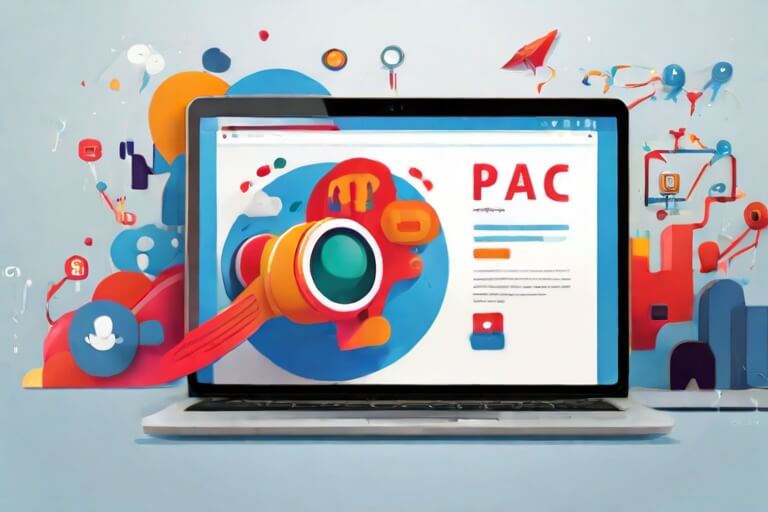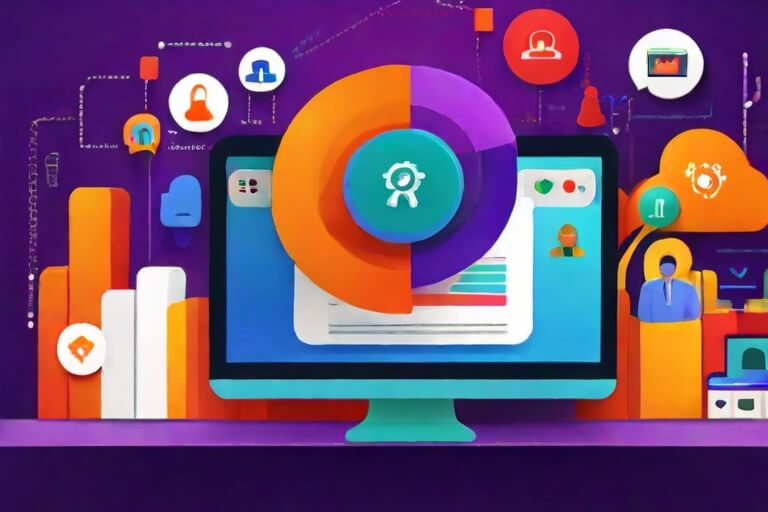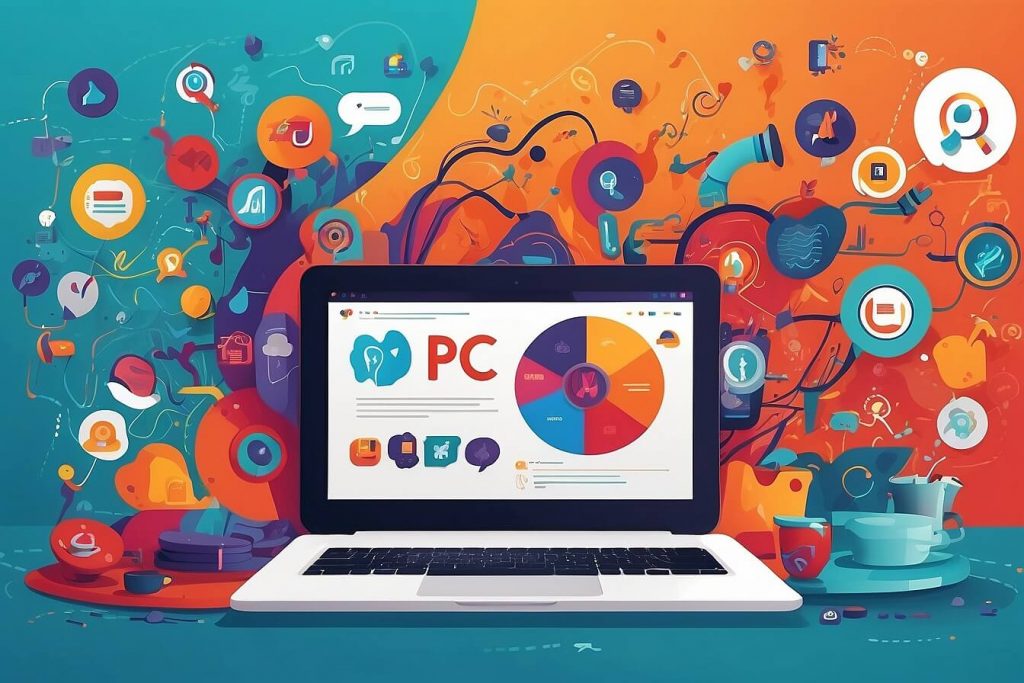The Role of AI in Google Ads Campaigns
In today’s ever-evolving digital landscape, the role of Artificial Intelligence (AI) in Google Ads campaigns has become increasingly critical. With its ability to analyze vast amounts of data and make automated decisions, AI has revolutionized the way businesses strategize and execute their online advertising campaigns. By harnessing the power of AI, marketers can elevate their Google Ads campaigns to new heights, ultimately driving greater efficiency, effectiveness, and return on investment. One of the primary roles of AI in Google Ads campaigns is its capability to analyze and interpret complex data sets. Gone are the days of manually sifting through endless spreadsheets and charts – AI algorithms can do the heavy lifting for you. By incorporating AI into your campaign management, you can gain valuable insights into consumer behavior, ad performance, and market trends. AI-powered data analysis enables you to understand your target audience better, identify key opportunities, and optimize your advertising strategies accordingly. With AI by your side, you can make more informed decisions and refine your campaign approach based on real-time data, ensuring maximum impact and efficiency.Understanding the Benefits of Automation in Google Ads Campaigns
When it comes to running successful Google Ads campaigns, automation plays a crucial role. By leveraging the power of artificial intelligence (AI), businesses can streamline their advertising efforts and achieve better results. The benefits of automation in Google Ads campaigns are manifold, and understanding them is essential for businesses looking to optimize their advertising strategies. One of the key advantages of automation is its ability to save time and resources. By automating certain tasks, such as bid management and ad optimization, businesses can free up their valuable time to focus on other important aspects of their marketing efforts. With AI-driven automation, campaigns can be continuously monitored and adjusted, ensuring that they are always running at peak performance. Additionally, automation can provide valuable insights and data-driven recommendations that can help businesses make informed decisions and improve their return on investment (ROI). Overall, incorporating automation in Google Ads campaigns allows businesses to streamline their advertising efforts, save time and resources, and achieve better results. In the following sections, we will explore the key components of an efficient Google Ads campaign and delve into how AI-driven automation enhances efficiency in driving successful campaigns.Key Components of an Efficient Google Ads Campaign
When it comes to running a successful Google Ads campaign, there are several key components that you need to consider. These components work together to ensure that your campaign is efficient and effective in reaching your target audience. First and foremost, thorough keyword research is essential. By identifying the right keywords that are relevant to your product or service, you increase the chances of your ads appearing in relevant search results. Tools like Google Keyword Planner can help you brainstorm and discover the most effective keywords for your campaign. Another important component is creating compelling ad copy. Your ad should be attention-grabbing and persuasive, enticing users to click on it. Make sure to highlight the unique selling points of your product or service and include a strong call to action. Remember, the goal is to drive conversions, so your ad copy should be compelling enough to encourage users to take action. In addition to that, having a well-designed landing page is crucial. When users click on your ad, they should be directed to a landing page that is clear, concise, and relevant to the ad they clicked on. Optimize your landing page by using relevant keywords, ensuring fast page load times, and including a clear call to action. Lastly, regular monitoring and optimization are key to maintaining the efficiency of your Google Ads campaign. Analyze the performance of your ads, adjust bids and budgets, and test different ad variations to improve your campaign’s effectiveness. By considering these key components and implementing them into your Google Ads campaign strategy, you can increase your chances of reaching your target audience and achieving your desired goals.Exploring the Integration of AI in Google Ads Campaign Management
The integration of artificial intelligence (AI) in Google Ads campaign management has revolutionized the way businesses reach their target audience. With AI’s ability to analyze vast amounts of data and make insightful decisions, advertisers can now optimize their ad campaigns more efficiently and effectively. This article explores how AI is transforming the landscape of Google Ads campaign management, providing businesses with the tools they need to achieve their marketing goals. One significant advantage of integrating AI into Google Ads campaign management is its ability to automate time-consuming tasks. AI-powered algorithms can quickly analyze data and make real-time adjustments to ad campaigns, ensuring that the right message is delivered to the right audience at the right time. By automating tasks such as bid adjustments, keyword selection, and ad copy optimization, businesses can save valuable time and resources, allowing them to focus on other important aspects of their marketing strategy. Additionally, AI can continuously learn from the data it collects, enabling it to improve its performance over time and deliver even better results. The integration of AI in Google Ads campaign management offers a remarkable opportunity for businesses to streamline their advertising efforts and maximize their return on investment (ROI).How AI-Driven Automation Enhances Efficiency in Google Ads Campaigns
The integration of artificial intelligence (AI) in Google Ads campaigns has revolutionized the way businesses optimize their advertising efforts. By leveraging AI-driven automation, marketers can now enhance the efficiency of their campaigns, resulting in improved performance and higher return on investment (ROI). In this section, we will explore how AI-driven automation contributes to the efficiency of Google Ads campaigns. Optimizing Ads for AI-driven automation:- Optimized keyword targeting: AI-powered automation tools analyze vast amounts of data to identify the most relevant keywords for your campaign. This enables you to target specific audiences and increase the chances of capturing high-quality leads.
- Ad performance optimization: Through continuous monitoring and machine learning algorithms, AI-driven automation can identify underperforming ads and automatically adjust them to maximize their effectiveness. This ensures that your campaign’s resources are allocated to the most successful ads.
- Real-time bidding: AI-driven automation enables real-time bidding, allowing you to bid on keywords based on their performance and value. This dynamic approach allows you to adapt your bidding strategy quickly, ensuring that your campaign stays competitive in the ever-changing advertising landscape.
- Continuous improvement: AI-powered automation tools are constantly learning and adapting. By analyzing historical and real-time data, they can make data-driven predictions and recommendations, helping you make informed decisions that drive ongoing improvements in your campaign’s efficiency.




